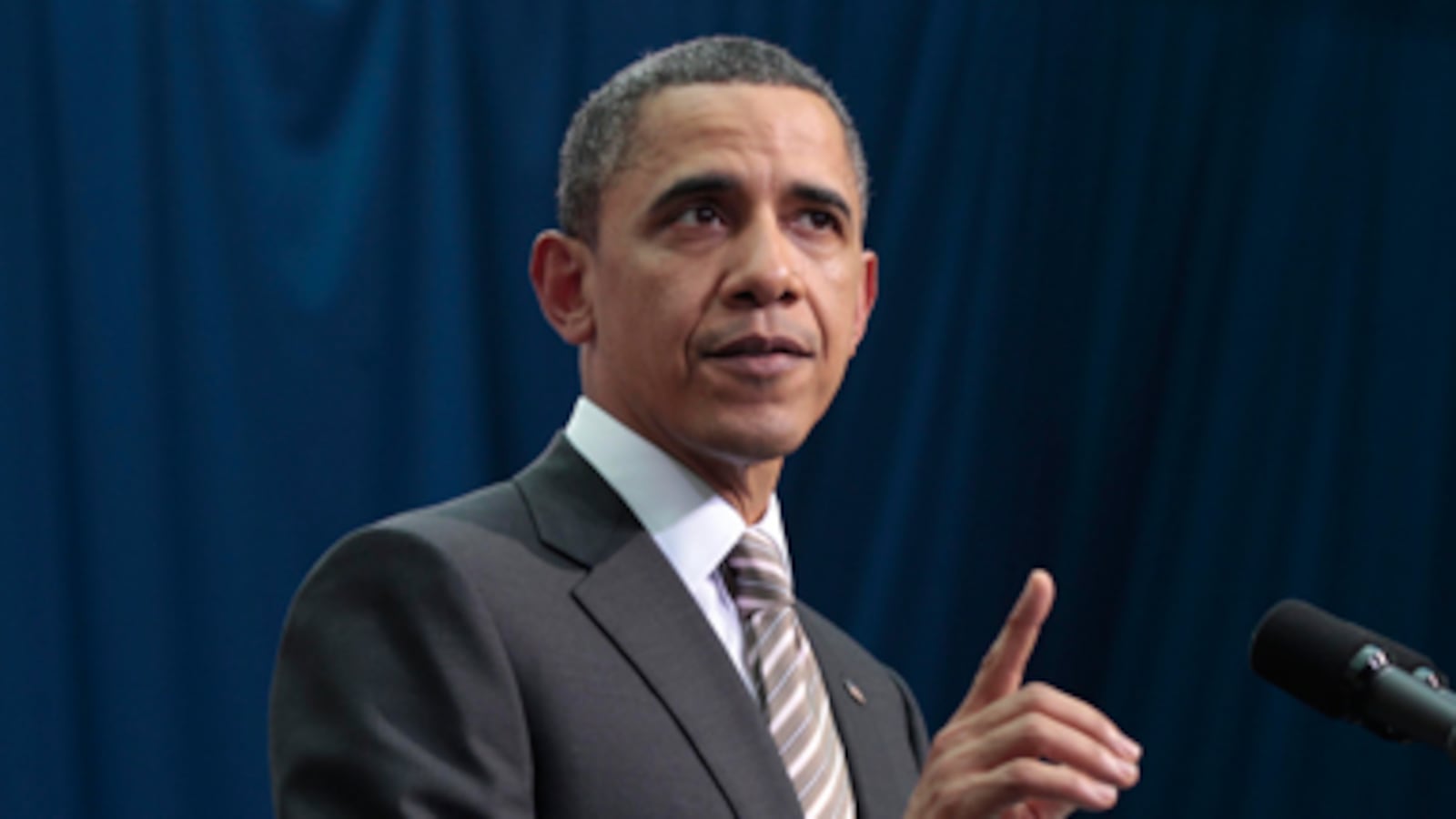Despite the strong interest of Congress and breathless TV reporters to hear President Obama’s plan in Libya, a more vested audience of the president’s words Monday night is Gaddafi himself, and his inner circle, whose futures are directly tied to the length and scope of the international operation.

Libyan state TV, widely considered to be the voice of the Gaddafi regime, has taken an irascible tone against coalition efforts in the country over the past two weeks. Several hours before Obama’s scheduled speech, Libyan news sources railed against “colonial invaders” and, in live broadcasts, implored non-participating countries like Brazil, China, India, and other members of the U.N. Security Council to halt the aggression. Several unidentified anchors thanked the students of Libya for standing against the “terrorist” armies challenging Gaddafi. At one point, several government pundits accused the West of stealing Libyan oil, noting the coincidence that the U.S. didn’t get involved in Egypt, where there’s much less oil.
There was no mention of loyalist setbacks that had been reported over the weekend in Sirte and the outskirts of Tripoli. Instead, a revisionist account painted the march of Gaddafi’s forces toward the rebel stronghold of Benghazi as “a demonstration aiming at reuniting Libyans” across the country. “The demonstration, starting from city of Sirte and going eastward to Benghazi city, will witness the participation of cities of Zliten, Kumis, Tripoli, Tajoura, Sebha, Hun and Nawahy Al-arbaah and other cities in southern and middle of Libya,” a government-written news article said. “The participants will be holding branches of olive tree as slogan of peace.”
International reporters saw things far differently . But you wouldn’t know it from the Gaddafi-sponsored broadcasts. Between interviews, several channels showed montages of pro-government demonstrators in the street chanting pro-Gaddafi slogans synced with dramatic action-movie soundtracks. Several call-in and man-on-the-street interviews yielded tirades against the “imperialist” invasion, and implored Col. Gaddafi never to stop fighting.
The Obama administration deflected questions about whether officials thought Gaddafi would be watching the president’s evening address.
On Monday, the Obama administration deflected questions about whether officials thought Gaddafi would be watching the president’s evening address (7:30 in Washington is 1:30 a.m. in Tripoli), or whether parts of the speech would be directed toward the regime. But one irony for the White House may be that as Obama cedes to demands for details on the U.S. and NATO commitment, whatever he says will impact the thinking of Gaddafi loyalists as they plot the next stages of battle against the surging rebels.
Until Sunday, Obama had been rhetorically hazy about U.S. interests in the region, confusing military interests to keep Libyans alive with political interests to see Gaddafi go. Declining to push Gaddafi from power has allowed the Libyan leader to hold on, potentially remaining in power if the fighting ended in a stalemate. But if Obama on Monday night begins to conflate the two goals, the tone could be much more ominous for Gaddafi. White House Press Secretary Jay Carney reiterated the administration’s threat that those close to Gaddafi will have to “make a judgment about what their lives will look like if they continue to stand by Colonel Gaddafi, with the full understanding that they will be held accountable by the international community.”
But how much further Obama goes to personally confront Gaddafi could affect just how much the Libyan leader digs in. “What Obama says tonight will directly affect Gaddafi’s ability to stay in power,” says Shadi Hamid, a fellow at the Brooking Institution’s Doha Center. “U.S. policy is one of the main determining factors that could explicitly lead to Gaddafi’s downfall.”
Daniel Stone is Newsweek's White House correspondent. He also covers national energy and environmental policy.
David Graham is a reporter for Newsweek covering politics, national affairs, and business. His writing has also appeared in The Wall Street Journal and The National in Abu Dhabi.







